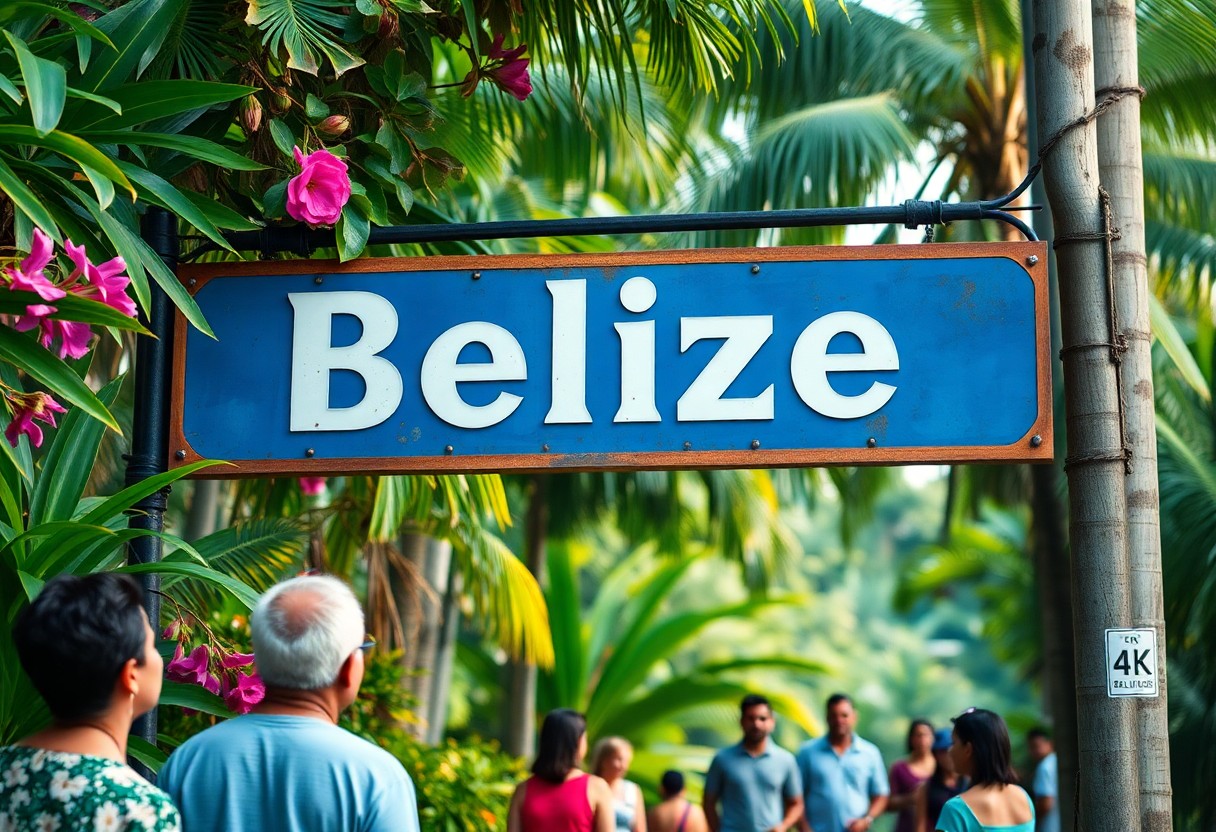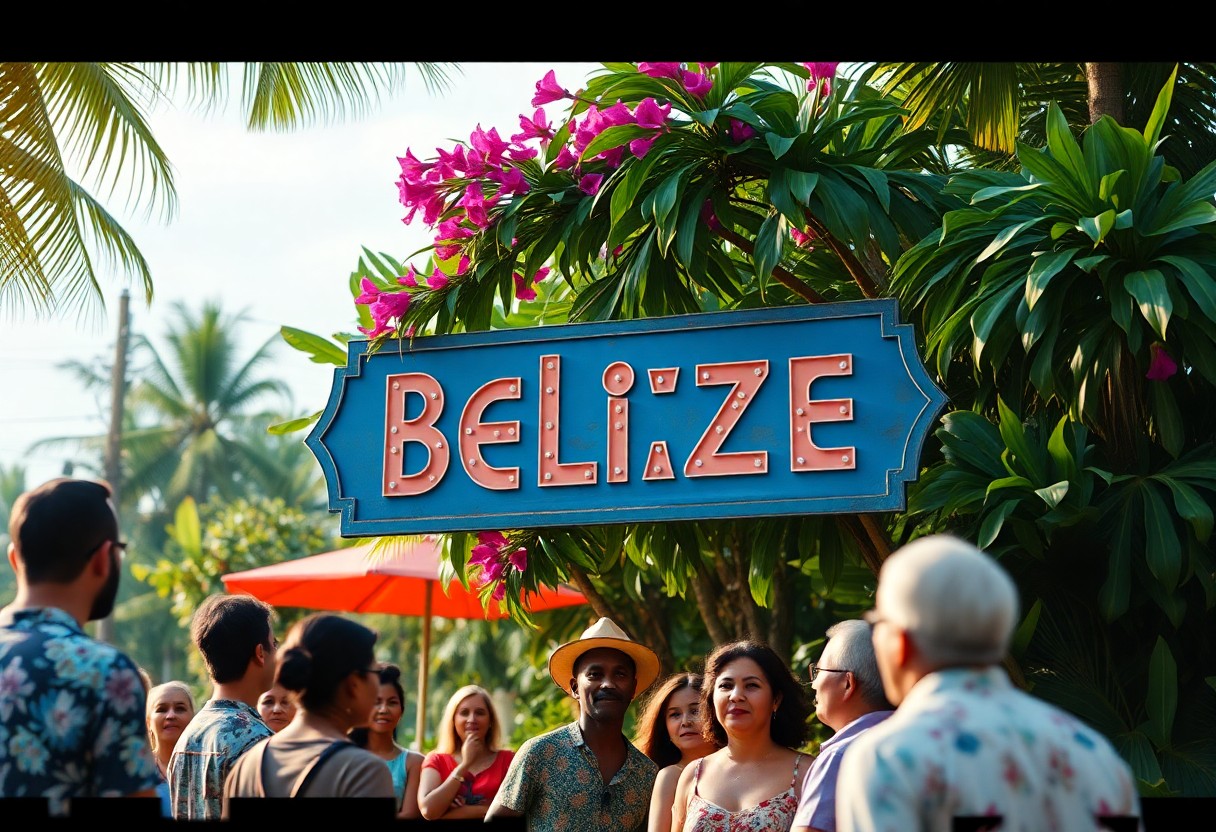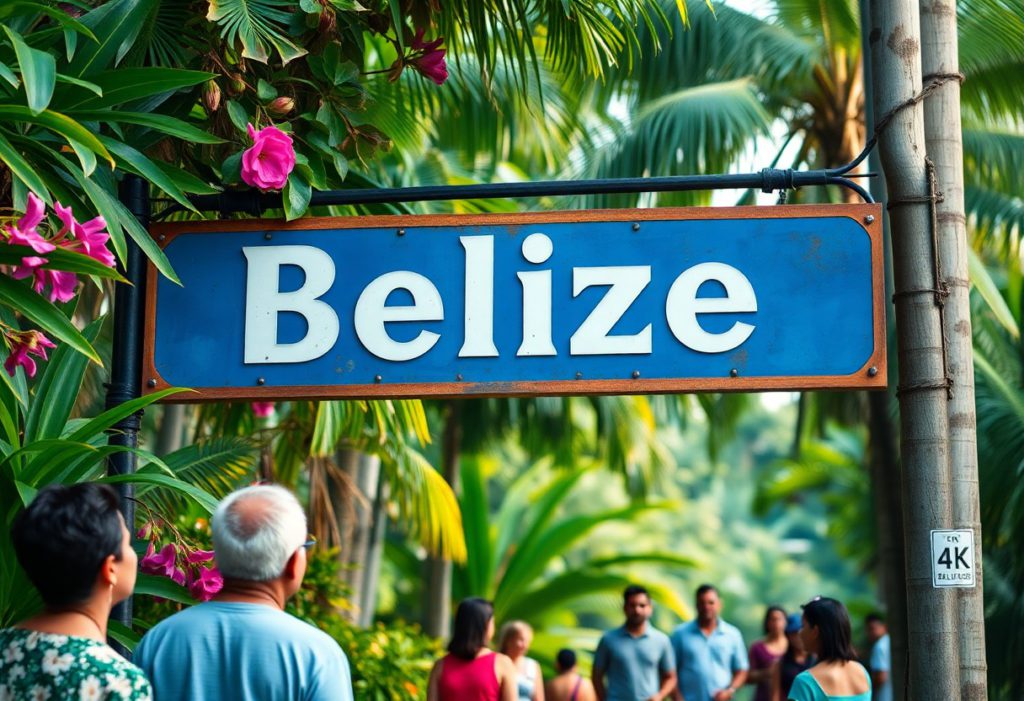Many individuals often find themselves perplexed when it comes to articulating the name of this stunning Central American nation. You might have come across various attempts at pronunciation, but the correct way to pronounce it is “beh-LEEZ”, distinctly different from the mispronounced versions such as “buh-LIZE” or “beh-LIZE.” Your quest for clarity ends here, as this detailed guide is crafted to help you confidently express the name of this captivating tropical destination. By mastering the correct pronunciation, you will not only enhance your communication skills but also show respect for the local culture and the beautiful languages spoken in the region.
Recognize and Avoid Common Pronunciation Mistakes
Before delving into the nuances of pronouncing “Belize,” it’s vital to familiarize yourself with the most prevalent mispronunciations that people often make. These errors can range from subtle missteps to entirely incorrect versions, which may inadvertently indicate your unfamiliarity with the country’s vibrant linguistic heritage. By being aware of these common mistakes, you will empower yourself to articulate the name more effectively and with increased confidence, thereby enhancing your overall communication skills.
Understanding the Difference Between “Beh-leez” and “Beh-lize”
If you ever find yourself uncertain about how to pronounce the name correctly, you may frequently feel torn between two common variations. The incorrect versions typically emphasize different syllables, which can create misunderstandings among native speakers and language enthusiasts. Acknowledging these phonetic distinctions is essential for effective communication and serves to bridge cultural gaps, ensuring respectful interactions with Belizeans.
The Misguided Pronunciation of “Bee-lease”
This variant diverges significantly from the accurate pronunciation, straying far away from the true articulation of the name. This particular mispronunciation reveals a fundamental misunderstanding of the word’s linguistic roots and its cultural significance. Grasping these errors can deepen your appreciation for the language and the rich cultural tapestry of Belize, enhancing your overall experience when engaging with its people.
Understanding pronunciation nuances such as “Behlize” adds another layer of complexity when striving to articulate the name of this country accurately. Paying close attention to the subtle distinctions that characterize authentic pronunciation is crucial. Native speakers typically employ a specific intonation that captures the essence of the word, emphasizing the initial syllable with a gentle ‘beh’ sound, followed by a distinct ‘leez’ ending that resonates with the local dialect.
Discover the Historical Roots of the Name “Belize”
If you’re intrigued by the linguistic origins of “Belize,” you will find that the name encompasses a captivating historical journey that intertwines indigenous and colonial influences. The etymology of the term is complex, reflecting the rich cultural tapestry woven into the identity of this Central American nation. Gaining insight into the name's origins enhances your connection to the place and its multifaceted history, enriching your understanding of the region.
Examining Potential Mayan Influences on the Name
One compelling theory suggests that the name “Belize” may have roots in <a href=”https://xamanekbelize.com/belize-s-diverse-ethnic-heritage-and-society/”>Mayan linguistic heritage</a>, potentially deriving from the Mayan word “belix,” which could translate to “muddy waters” or refer to a specific river tributary. This linguistic connection underscores the deep indigenous heritage embedded within the naming conventions and cultural identity of the nation, highlighting the importance of recognizing these historical ties.
The Influence of Colonial History on Pronunciation
European interpretations have significantly shaped the evolution of the name through Spanish and British colonial interactions. This linguistic transformation occurred as European settlers encountered and documented the region, gradually adapting indigenous names and terms to fit their own linguistic frameworks, which led to considerable alterations in pronunciation over time due to their interpretations.
Understanding the Dynamics of Colonial Naming Variations
Variations in the name began to emerge during colonial periods, with Spanish explorers and British settlers offering different phonetic renditions. The British colonization notably influenced the current pronunciation, transforming indigenous phonetics into a more anglicized version that we recognize today as “Belize.” This shift mirrors the broader historical context of colonial influence on language and the complexities of cultural integration.

Key Strategies for Mastering the Pronunciation of Belize
While mastering the pronunciation of Belize may initially seem challenging, numerous effective strategies can assist you in sounding like a local. Consider incorporating these essential tips into your practice to enhance your pronunciation skills:
- Emphasize the initial syllable to ensure clarity in speech
- Utilize a soft “z” sound to achieve accuracy
- Avoid common pitfalls in mispronunciation
Recognizing and perceiving these nuanced sounds will empower you to articulate the country’s name with confidence and authenticity, enriching your interactions with others.
Phonetic Breakdown for Clear Understanding
When dissecting the word phonetically, you will discover that “Belize” is pronounced as “buh-LEEZ.” The stress accentuates the second syllable, creating a rhythmic and fluid sound that encapsulates the linguistic essence of this vibrant Central American nation. This understanding is crucial to mastering pronunciation.
Contrasting Local Creole Pronunciation with Standard English
Subtle variations exist between the local Creole pronunciation and standard English when articulating “Belize.” Nevertheless, the fundamental pronunciation remains consistent across diverse linguistic contexts, which is important to note.
To gain a better understanding of the linguistic nuances prevalent in Belize, it’s essential to recognize that local Creole may introduce slight accent variations. Native speakers often blend elements of English, Spanish, and Creole, resulting in a rich linguistic tapestry that reflects the country’s diverse cultural heritage and history, enhancing your overall comprehension of its linguistic landscape.
Here’s the content for your blog post sections:
Primary Factors Impacting the Pronunciation of Belize
Unlike straightforward language rules, the pronunciation of “Belize” is influenced by multiple linguistic elements. Several critical factors impact how you articulate this name:
- Linguistic background of the speaker
- Personal exposure to the language
- Regional dialect variations
- Language learning experience and practice
Recognizing these nuances will aid you in understanding the complexity behind the pronunciation of this name and improve your overall communication skills, making your interactions more meaningful.
Delving into Regional Pronunciation Variations
Pronunciation variations can be observed across different geographical regions. You may notice subtle differences between North American, Central American, and British English speakers. These regional distinctions can significantly influence how “Belize” is pronounced in everyday conversations, showcasing the rich diversity of language and its evolution across cultures.
The Importance of Cultural Context in Pronunciation
Cultural understanding plays a significant role in pronunciation variations. Your familiarity with Belizean history and its rich linguistic traditions can greatly influence how authentically you articulate the name, allowing you to connect more deeply with the culture.
Pronunciation transcends mere phonetic accuracy; it serves as a reflection of a rich cultural heritage. When you pronounce “Belize” correctly, you engage meaningfully with the country’s diverse linguistic landscape. Native speakers appreciate when you approach the pronunciation with respect and a genuine interest in their cultural nuances, fostering connections that are both respectful and enriching.
Evaluating the Benefits and Challenges of Accurate Pronunciation
To fully grasp the implications of accurately pronouncing “Belize,” let’s explore the advantages and potential challenges in a comprehensive breakdown.
| Benefits | Challenges |
|---|---|
| Demonstrates linguistic respect and awareness | May lead to initial awkwardness in pronunciation |
| Enhances clarity in communication with locals | Could confuse some listeners unfamiliar with the variations |
| Shows cultural sensitivity and appreciation | Requires consistent practice to master |
| Improves overall language skills and understanding | Involves a minor learning curve for some |
Exhibiting Cultural Respect Through Pronunciation
If your intention is to demonstrate genuine respect for Belizean culture, mastering the correct pronunciation is more than just a linguistic challenge. It reflects your commitment to understanding and honoring local linguistic traditions, thus deepening your connection with the culture and its people.
Ensuring Clear Communication with Accurate Pronunciation
Though pronunciation may seem like a minor detail, accurate articulation is crucial for preventing misunderstandings and facilitating effective communication with native speakers. By mastering the intricacies of “Belize,” you will navigate conversations with confidence and ease.
By articulating the name correctly, you signal your cultural sensitivity and linguistic competence, which can lead to more meaningful interactions and deeper connections with the people of Belize.

Your Detailed Step-by-Step Guide to Pronouncing Belize
Now, let’s break down the pronunciation of “Belize” with a straightforward, step-by-step guide. This detailed table will assist you in mastering the pronunciation:
| First Syllable | buh |
| Second Syllable | leez |
Comprehensive Breakdown of Each Syllable
Understanding the individual syllables is crucial for accurately pronouncing “Belize.” The first syllable, “buh,” is soft and brief, while the second syllable, “leez,” features a sharp, clear sound that should be emphasized for correctness and clarity.
Effective Techniques for Practicing Pronunciation
If you aim to perfect your pronunciation, begin by articulating each syllable separately before blending them together into a cohesive sound. Engaging in slow, deliberate practice will significantly build your confidence over time.
You can utilize audio resources like language learning applications or pronunciation videos to listen to native speakers. Listening and repeating is an excellent method for training your ear and mouth to produce the correct sounds. Consider recording yourself and comparing your pronunciation with that of native speakers to effectively monitor your progress and make necessary adjustments.
Final Reflections on the Pronunciation of Belize
With the information provided, you now possess a deeper understanding of the nuanced pronunciation of Belize. Whether you choose to adopt the American “BELL-eez” or the local Belizean “beh-LEEZ,” your choice signifies cultural awareness and linguistic respect. With this knowledge, you can confidently engage in conversations about this Central American nation, appreciating the subtle variations in pronunciation that exist. By mastering these pronunciation tips, you demonstrate linguistic sensitivity and an appreciation for regional speech patterns. Your newfound knowledge will ensure you sound informed and culturally attuned when referencing this vibrant and beautiful country.
Your Most Common Questions Answered
What are the two primary pronunciations of “Belize”?
The two standard pronunciations are “buh-LEEZ” (most common in North America) and “beh-LEEZ” (preferred by many Belizean natives). Both pronunciations are considered linguistically acceptable, with the first variant being more prevalent internationally, reflecting regional preferences.
Do pronunciation differences exist between English and Spanish speakers?
Yes, Spanish speakers typically pronounce Belize as “beh-LEE-seh,” featuring a softer ending, while English speakers generally use “buh-LEEZ,” which carries a more distinct “z” sound. These linguistic variations arise from regional phonetic patterns inherent in each language, illustrating the cultural diversity of pronunciation.
What factors contribute to the existence of pronunciation variations for this country’s name?
Pronunciation differences stem from historical linguistic influences, including the impact of British colonial heritage, indigenous Mayan language roots, and Spanish colonial effects. The complex linguistic landscape of the country contributes to multiple accepted pronunciation methods, reflecting its rich multicultural history and the diverse influences that shape its language.
The Article How to Pronounce “Belize” Correctly: A Quick Linguistic Guide appeared first on Belize Travel Guide
The Article Pronounce “Belize” Correctly: A Quick Linguistic Guide Was Found On https://limitsofstrategy.com


